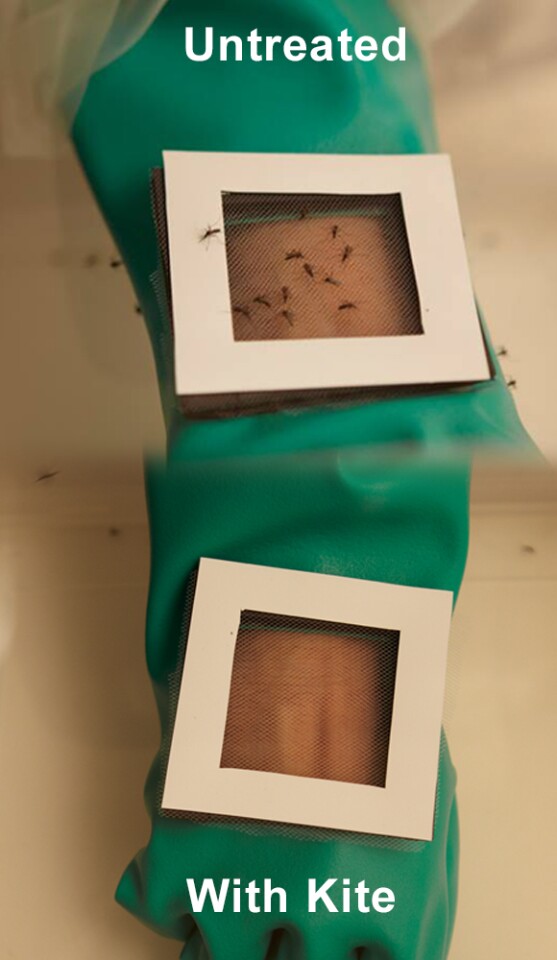Depending on what part of the world you live in, mosquitoes can range from being an annoyance, to acting as carriers of life-threatening diseases such as malaria and West Nile virus. Sprays containing deet do a fairly decent job of keeping the mozzies at bay, but they’re also highly toxic. Less-nasty sprays, bracelets and other devices are also available, although (as I can attest to from personal experience) they tend not to be very effective. Now, however, a group of California-based entrepreneurs are developing what could be the ultimate deterrent – the Kite Mosquito Patch.
Each disposable square patch measures just 1.5 inches (38 mm) per side, and is simply stuck onto the clothing like an adhesive decal. A proprietary blend of FDA-approved non-toxic ingredients within the patch then exudes a scent, that reportedly blocks mosquitoes’ ability to detect exhaled carbon dioxide – that’s the major method by which the insects track down their human prey.
Once exposed to the air, the patch remains effective for 48 hours.

The Kite is based on research that was initially carried out at the University of California, Riverside, where it received funding from the Bill and Melinda Gates Foundation and the National Institutes of Health (NIH). The company that was founded to develop the patch has also benefitted from an NIH grant, along with grants and collaborative agreements formed with other organizations.
Initial large-scale testing is planned to take place in Uganda, where disease-carrying mosquitoes are a major health issue. Ultimately, it is hoped that Kite patches will be widely available both to aid organizations, and to consumers around the world. Hopefully Gizmag will be able to acquire some of the patches soon, to conduct our own hands-on testing – it would be interesting to see if a patch worn on the shirt, for instance, is really effective at keeping mosquitoes away from one’s legs and feet.
The Kite group is currently raising finds on Indiegogo, and has proven very successful. The funding goal of US$75,000 was met in just four days, with the total currently sitting at approximately $236,000. There’s still plenty of time to take part, however. A pledge of $10 will send a pack of five Kites to a family in Uganda, while $35 will send 10 patches and also get you 10 of your own. An estimated retail price has yet to be established.
Other recent research projects have looked at introducing mosquitoes that have been genetically engineered to stop them from smelling humans, creating mosquito-repellant clothing, and even wiping the insects out entirely.
More information on the Kite patch is available in the pitch video below.






